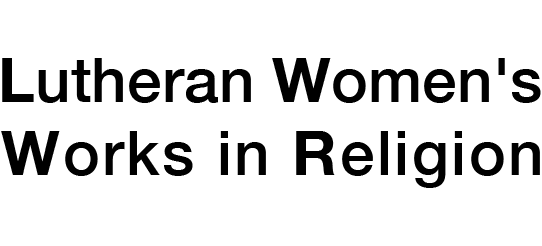Bibliography Author: Sharon Betcher
THEOLOGY
Sharon Betcher "Crip/tography: Of Karma and Cosmopolis" In Planetary Loves: Spivak, Postcoloniality and Theology. eds. Stephen Moore and Mayra Rivera. 2010Betcher assumes Spivak‘s challenge towards archaeology of the invisible powerlines of ‗globalicities.‘ After opening out the gestural articulations of civility, Spivak‘s renovation of western anthropology is assumed as key to theological geographies hoping to counter urban grids of fear.
THEOLOGY
Sharon Betcher "Take My Yoga upon You (Matt 11:29): A Spirit/ual Pli/e for the Global City" In Polydoxy: Theologies of the Manifold. eds. Laurel Schneiders and Catherine Keller. Routledge 2010Thinking with and through disability experience (as itself a yoke or harness for spiritual practice) and comparative theological conversation might occasion the redeployment of [S]pirit as a “yoga” or “yoke” (the words share the same Sanskrit root) of generosity so as to address the raw aches of our precarious existence to which the urban disposition of the planet now exposes us.
THEOLOGY
Sharon Betcher "Politics of Fear, Path of Faith" In Stand Boldly: Lutheranism for the 21st Century. ed. Eric Trozzo. Three Trees Press 2009Modernity, environmental degradation and the pull of people towards larger cities disrupts the human psyche, developing an ‘attachment disorder,’ where trust becomes near impossible. Religions and faith, typically, have been devoted to the ‘safguard[ing of] trust.’ In this context, Luther‘s notion of sola fide is engaged as the author argues that faith is the practice that teaches us to ‘navigate through our fears.’
THEOLOGY
Sharon Betcher "Grounding the Spirit" In Eco-Spirit: Religions and Philosophies for the Earth. eds. Laurel Kearns and Catherine Keller. Fordham University Press 2007Betcher engages a psycho-theological history of Spirit, that concept by which Christianity has often escaped the tug of gravity. By opening out the aversions to ground that have been carried in theologies of spirit, Betcher hopes to release Spirit in and for ‗organic transcending.‘ When the Spirit gets grounded, we may then circulate our life love as groundswell rather than transcendental updraft.
THEOLOGY
Sharon Betcher "Monstrosities, Miracles, and Mission: Religion and the Politics of Disablement" In Postcolonial Theologies: Divinity and Empire. eds. Catherine Keller, Michael Nausner, and Mayra Rivera. Chalice 2004 : 79-99Betcher considers the religious use of ‗disablement‘ and how the metaphor, when imbricated with Spirit, figures into modern, Western, Christian and cultural eschatology, social justice and ecclessiology, and even scientific and economic, practice.
THEOLOGY
Sharon Betcher "The Second Descent of the Spirit of Life from God: The Assumption of Jemima Wilkinson (Chapter 6)" In Apocalyptic Desire. eds. Lee Quimby and Brenda Brasher. Equinox Publishing 2006 : 72-85Betcher considers how Jemima Wilkinson, the first American female utopian leader, having leaned into surrounding industrial socio-economic anxieties and into the energies of religious apocalypse, attempted to open out a communitarian economics and to create a social structure or ‘living room’ amenable to the dislocated by making ‘Spirit’ mean otherwise.
THEOLOGY
Sharon Betcher Spirit and the Politics of Disablement., Minneapolis: Fortress Press 2007Betcher analyzes our world and God’s embodied presence in the light of her own disability and the insight it affords. When released from the ― “ideology of normalcy,” disablement, she claims, has revealed powerful alternative understandings of the body and body politic, in Scripture, in the actions of Jesus, in the healing work of the Spirit at work in the world.
BIBLICAL STUDIES
Sharon Betcher Calling of the Nations: Biblical Hermeneutics, Colonial & Postcolonial PreOccupations.., eds. Mark Vessey, Sharon Betcher, Harry Maier, and Robert Daum. Toronto: University of Toronto Press 2051Current notions of nationhood, communal identity, territorial entitlement, and collective destiny are deeply rooted in historic interpretations of the Bible. Interweaving elements of history, theology, literary criticism, and cultural theory, the essays in this volume discuss the ways in which biblical understandings have shaped Western – and particularly European and North American – assumptions about the nature and meaning of the nation.
BIBLICAL STUDIES
Sharon Betcher Paradise Highway: Of Global Cities and Postcolonial Reading Practices, epilogue to Calling of the Nations: Biblical Hermeneutics, Colonial & Postcolonial PreOccupations., eds. Mark Vessey, Sharon Betcher, Harry Maier, and Robert Daum . Toronto: University of Toronto 2010Considers how, in Vancouver, the sacred texts of different traditions must and can be read through postcolonial hermeneutics, given the ways in which religio-ethnic communities now reside one beside each other along Paradise Highway.
THEOLOGY
Sharon Betcher "Disabling ‘The Fall’" Disability and Health In Journal of Religion, Disability and Health. eds. Jonathan Campbell, Deathrice DeWitt and Hans S. Reinders. 2011In this article, the author argues that modernity developed theological notions of ontological defect into scientific and medical pathology such that ‘The Fall’- now borne in cultural norms as well as scientific paradigms- marginalizes differing somatic capaciousness.

